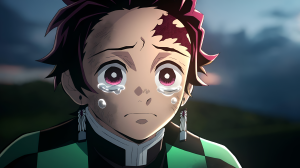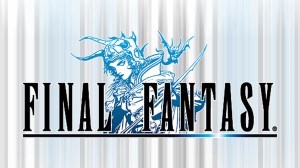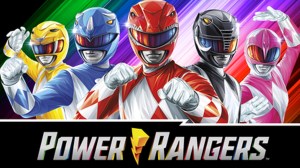Suicide Squad Isekai is nothing short of genius. The hit series brings some of the best parts of television together: DC legends, anime, and isekai. The team at Warner Bros. Japan has been hard at work with Wit Studio to bring Suicide Squad Isekai to life. This year, its first season hit television to great success, and ComicBook was able to speak with two producers who helped put the show on the map.
Videos by ComicBook.com
In anticipation of Suicide Squad Isekai reaching its season one finale, ComicBook chatted with Shinya Tsuruoka and Sho Ohtani. The producers, who work at Warner Bros. Japan and Wit Studio respectively, spoke at length about the anime’s unlikely origins. From its genius pitch to Barry Allen’s anime potential, the producers dug deep into Suicide Squad Isekai with ComicBook, so you can read up on our interview below:
Suicide Squad Isekai Interview
Can you explain how the project Suicide Squad Isekai came together? How did Warner Bros. Japan work with Wit Studio to bring the anime to life behind the scenes?
Shinya Tsuruoka: First of all, from an internal point of view, Batman Ninja (2018) was a big part of the story. The concept of producing an anime adaptation of DC with a Japan-inspired taste by Warner Bros. Japan, was quite successful with Batman Ninja (2018). This was a unique,distinctive project for WBJ. Following this success, we thought, “Let’s try this with a TV anime series using another DC characters!” So, we approached WIT Studio, one of the best studios in Japan, with the project proposal. They showed great interest, and the discussions progressed rapidly from there.
Can you explain how the project Suicide Squad Isekai came together? How did Wit Studio work with Warner Bros. Japan to bring the anime to life behind the scenes?
Sho Ohtani: I always wanted to work again with Nagatsuki-san, and Umehara-san, who I worked together on our previous original project. Then our company’s CEO Wada got a proposal of DC anime adoption from WBJ. As I’m huge fan of American comics, I gladly accepted the offer. I suggested “Suicide Squad” as the main characters for this project, and both Nagatsuki-san and Umehara-san were enthusiastic about the idea, so we quickly decided on the subject. As matter of course, Nagatsuki-san suggested the idea of incorporating an isekai (another world) element, and everyone thought it sounded amazing. So WBJ immediately considered the idea and greenlight the project. Rather than a formal discussion, we all quickly agreed that the concept was exciting. I realized how important it is for everyone to find the initial idea fun.
As Suicide Squad Isekai came together, did the show’s team face challenges adapting the DC Comics team into an anime? Why was Suicide Squad chosen as the show’s focus?
Tsuruoka: Like Ohtani-san says, the selection of Suicide Squad was proposed by WIT studio. But to be honest, WBJ also considered that the Joker and Harley Quinn are as iconic as Batman and Superman. And considering that these characters have high popularity and recognition in Japan, we believed that it would beparticularly well-suited to the Japanese anime style.
At a very early stage, Ohtani-san suggested that the script be written by Nagatsuki-san, and the story set is in an isekai. Like what if Harley Quinn and Suicide Squad go on a rampage in ISEKAI… Instead of considering the DC character itself, we focused on the intriguing combination of “Isekai” and “Suicide Squad”. This mixtured concept promised to create something interesting, which is why we chose Suicide Squad.
The challenges… we had a lot to be discussed…. As the story is original, we had to balance the unique aspects of Japanese anime with the established characteristics of the original characters. There were elements of character traits and settings that both sides were unwilling to compromise on. The challenge was to integrate these aspects into the story without losing the excitements.
Ohtani: We had to discuss several times with DC about the consistency of DC characters and the necessary elements of the scripts. We have been asked by DC about the possibility of keeping the DC characters true to their original settings. While we made some revisions, we had to have multiple discussions about the parts that would be difficult to change, given the course of the story. There are many reasons for selecting Suicide Squad, but the main reason is that I love them so much. Given that we are producing it, we wanted to bring out the unique WIT style. I felt that with these characters, our staff could really immerse themselves and go all out, aligning with the chaotic and dynamic nature of the Suicide Squad.
While putting together Suicide Squad Isekai, how did its story come together? Did the team use any comics as a guide? Or was the story fairly original from the start?
Tsuruoka: It was original story from the first point. As I mentioned earlier, the concept of Suicide Squad and ISEKAI was there from the beginning. The script was entrusted to Nagatsuki-san, who is the author of the distinguished series “Re: Zero” and the leading figure in isekai genre. And Umehara-san. Their involvement was decided early on, and Nagatsuki-san quickly wrote an original plot of Suicide Squad Isekai. This structure made the main concept of this work, and we gradually fleshed it out and developed it into the full script.
In the anime industry, isekai titles are incredibly popular, and there are a lot of them to watch. How does Suicide Squad Isekai stand out amongst the competition?
Tsuruoka: The concept of isekai in Japanese anime has become extremely popular over the past few years, and there are many such series. Because of this, similar characters, settings, and story developments are everywhere. However, I believe this work stands out with its unique originality that sets it apart from all the others. For example, the main characters are existing DC characters, which already have an established recognition base. And for those familiar with DC characters, there’s a unique enjoyment in wondering how these characters will be on rampage in an isekai, or predicting how they would act. This work is an original anime from Japan, we’ve made some changes to the original character settings and incorporated elements unique to isekai, which I believe that the highlights of the series.
Suicide Squad Isekai looks unlike anything we’ve seen before from DC Comics and its rich history of animation. What would you say is the top charm of this anime?
Ohtani: Looking back, it seems that the staff approached the project not by trying to fit DC into the uniquely Japanese isekai genre, but rather by incorporating isekai elements into Suicide Squad. I believe that the characters from Suicide Squad, who are loved by fans all over the world, were successfully integrated into this Japanese-created isekai without losing their original charm, and that’s what made the project work so well. Blending in the uniquely Japanese isekai elements into Suicide Squad, that’s how it makes special anime apart from other isekai anime.
Outside of the Suicide Squad, which DC Comics heroes do you find most appealing? Do you think there are other heroes or villains in the universe that would suit anime?
Ohtani: Well then, I would say the Flash. I like the Flash himself, but the other characters from the series are so compelling that I end up loving the entire show. The character that would suit anime…hmm then I would say Savitar from the show. When I first watched The Flash, I was amazed by how complex and well-developed the characters were. I can’t go into details without giving away spoilers, so what I can share is that, I really like is how relatable his situation is. Given what happens to him, it’s understandable that he ends up the way he does, and that makes it easy to empathize with him. In the Flash series, there are so many villains that make you wonder, “How is he going to win against this one?” Among them, Savitar really left a strong impression on me.
In the past, we’ve seen western superheroes enter the world of anime. It is definitely exciting seeing DC Comics tap into the growing anime industry. Why do you think this pairing works so well?
Ohtani: DC Comics has a long history and features an array of brilliantly designed heroes and villains. Each character is meticulously crafted with a rich backstory, which is why they are so beloved by fans.
However, while many people might recognize names like Clayface or Deadshot, they may not fully understand these characters without reading the DC Comics. In Suicide Squad Isekai, due to the limited number of episodes and the need to maintain pacing, we weren’t able to delve deeply into character introductions. I believe that if we carefully explore these characters in more detail before adapting other DC properties like Suicide Squad or Justice League into anime, it would help these stories resonate more with Japanese audiences. There are still so many characters I’m not familiar with, so I’m hopeful that as more Japanese creators get to work with these fascinating characters, we’ll see even more amazing anime come to life.
In the past decade, both anime and manga have become incredibly popular across the globe. Many have coined the movement a global renaissance for the medium. How do you see Suicide Squad Isekai fitting into that movement if at all?
Tsuruoka: The anime and manga movement is expanding at an incredible pace, and I can really feel how it has become a universal language and standard worldwide. At the same time, I feel that the traditional boundaries between different forms of entertainment-such as movies, manga, and anime-are disappearing. Nowadays, a show like this anime has a greater chance of being embraced by fans of anime, movies, and American comics worldwide. It’s almost like there’s a movement saying, “If it’s interesting, that’s all that matters.” If viewers watch this series and think, “This really pushes the boundaries,” then, in a way, that’s exactly what we were aiming for. And if they also think, “It’s different, but it’s great because it’s entertaining,” then it means this work fits perfectly with the current trends. I hope people can set aside any preconceived notions and simply enjoy it for what it is.
Are you keeping up with Suicide Squad Isekai? Let us know what you think over on Twitter and Instagram. You can also hit me up @MeganPetersCB to share your take!








